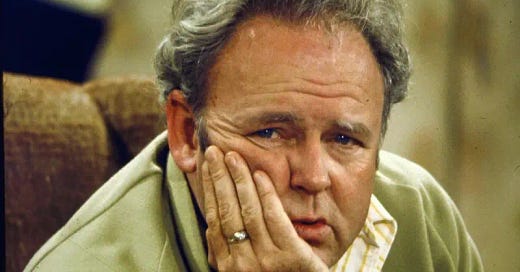69% of Republicans do not have a great deal of trust in medical scientists, as opposed to 47% of Democrats. How much does this difference in institutional trust affect the diagnosis of mental illness?
Imagine two individuals with a mental issue. One is a Kamala supporter, the other a Trump supporter. Who is more likely to make an appointment with their doctor to get a diagnosis and medication?
Because political affiliation is heritable, liberals are more likely to be surrounded by liberal family members who push them toward diagnosis and therapy; conservatives have family members who are more likely to stigmatize, ostracize, ignore, or “pray about it.” Conservatives are more religious, meaning that, in response to a mental issue, they are more likely to go to church than to a therapist.

Unless a major crime has been committed, diagnosis requires some level of cooperation on the part of the individual with the mental illness. Conservatives are less cooperative with “experts,” like therapists and psychologists, who they widely distrust. This is because experts tend to be liberals.
Liberals are twice as likely to seek out “emotional therapy due to political division.” Does that mean liberals are disproportionately affected by political division? Not at all. Conservatives are more likely to lose romantic, sexual, economic, and social opportunities due to political division. Conservatives are also less likely to punish liberal family members for partisan reasons.
Conservatives are more likely than liberals to be subject to bullying, harassment, exclusion, and “cancellation” over their political views. So why do liberals seek out therapy for “political PTSD” much more frequently than conservatives, despite the fact that they receive less abuse?
It may be that liberals are more neurotic and sensitive than conservatives, and express worse symptoms than conservatives even when subject to less harsh psychological conditions. On the other hand, it may be that conservatives cope in different ways than liberals, through religion or overeating.
In Part 11 of this series, I will explain my skepticism with the Kierkegaard and Dutton hypothesis of leftism and mental illness, and offer alternative methods of testing the hypothesis by direct measures (rather than self-reporting).






Most therapists are liberal, as you allude to.
I also think conservatives have more access to religion, which of course isn't exactly the same thing but serves many of the same purposes in terms of dealing with life's dark side. Pastoral marriage counseling used to be a thing, and certainly religions like Christianity have things like prayer or accepting it as part of God's greater plan you can do when a loved one dies.
Conservative therapy is religion, they consider thousands of years of accumulated wisdom and dedicated meditation to be more effective than whining to someone with a BA in psychology.
Therapy is effectively a scam since it has no philosophical “answer” to any problem you present. A moral relativist trying to explain why you feel sad will yield the same result as them trying to explain why murder and rape are immoral.